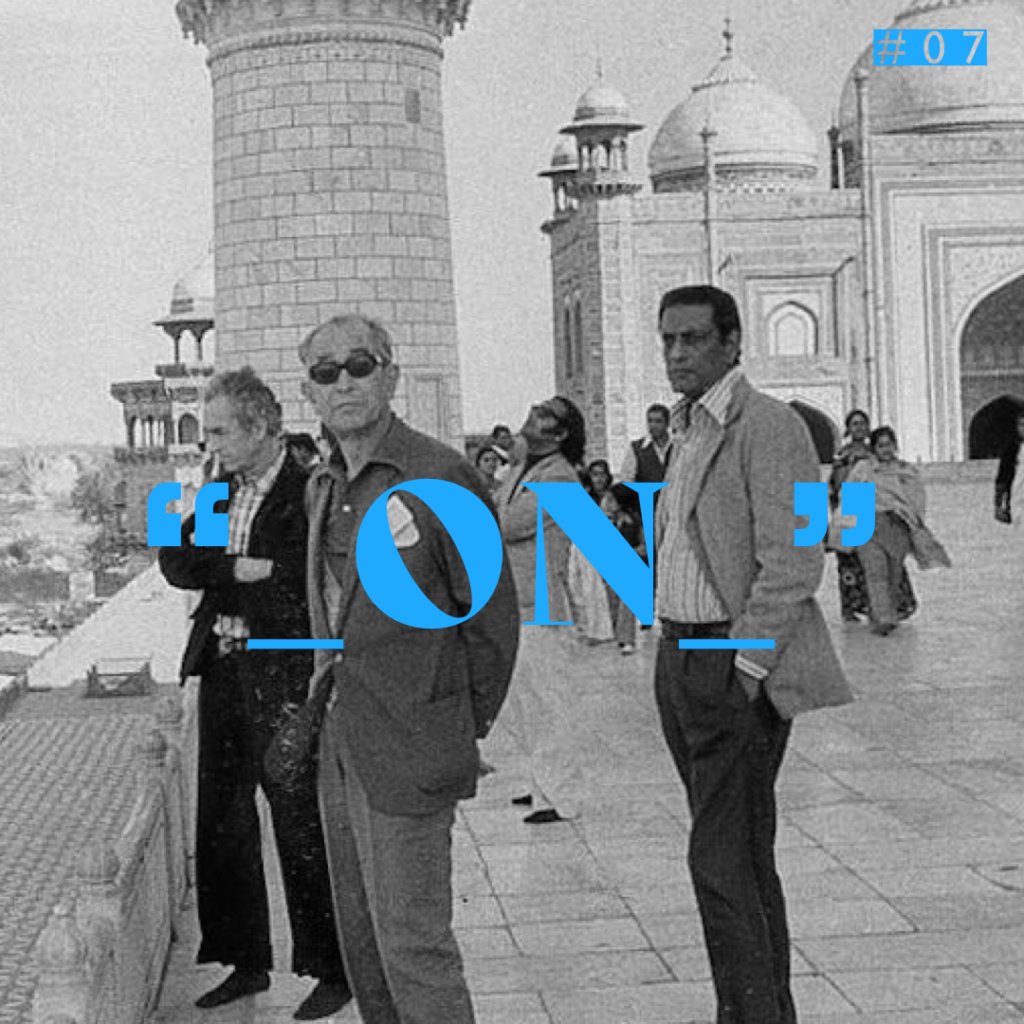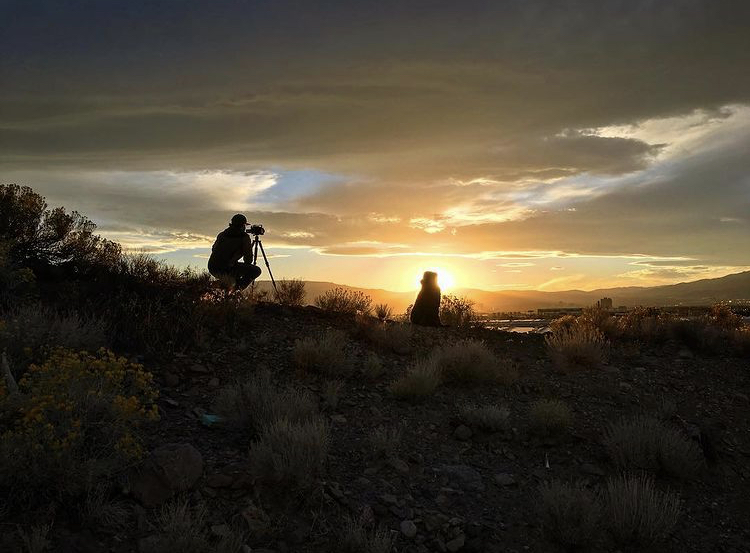In this series we’ll be hearing from a new person each month, talking on a specific topic of their choosing – something they love, a hobby, an interest, a thread they’ve been feeling lately, or a new discovery.

Cameron White on Short Films
“First, one thing that I recommend that everyone should watch if they’re at all interested in short films is the movie Two by Satyajit Ray. It’s available on youtube in pretty good quality and it’s about 12 minutes long; which I know is longer than the length of the 3 Minute Film Competition of course, but I think it’s really time well spent –
I wish I’d seen this film earlier in my career as I think that it’s a powerful example of a few of the biggest strengths of short films and the reasons to engage with them (both as a creator and as a viewer). First, it’s an example of how to tell a story with images. Every shot conveys new information about the plot or characters. There’s not really any complex camera moves or editing, no particularly flashy filmmaking. But it’s so effective as a piece of cinema because of how every choice is in service of the goal of telling this one story: of communicating this one moment in time. Generally speaking, I think, filmmakers—both amateur and professional—will be rewarded in their short filmmaking efforts as they embrace those ideals. Specifically the following:
- Keeping things simple: short films are short by design and filmmakers should generally focus on one main concept or idea.
- Power of images and juxtaposition. The camera can be used to show relationships between people and the audience forms its understandings by how images are contrasted. Editing is more than about just showing another angle, it’s about showing relationships and conveying information. Make every edit matter.
- Embrace limitations. Some small bit of behind-the-scenes on Two: the director was originally asked to make it in English. As he wasn’t comfortable working in his non-native tongue, he opted instead to make a nearly silent film, understandable by English and Bengali speakers alike. Limitations can spark creativity. Having access to all the equipment and personnel in the world won’t make an idea inherently more interesting. What is your biggest limitation as a filmmaker? How can you turn that into a strength?
Let me clarify that I don’t think all filmmakers should try to fit this into a formula of some kind. But I do think it’s instructive to examine why you want to make films and then how you can make them the best versions of what they can be.
That all being said, hopefully the 3 Minute Film Festival being broken up into categories this year will encourage more out-of-the-box thinking in terms of approaching making a low-budget or first time film. Not all films need to be narrative-based and even having a category for experimental is a way to communicate that.
So this is at least some food for thought and a small homework assignment of watching a short film. It’s also not a bad idea to just…you know, keep watching short films! There’s that weird paradox where everybody seems to want to make shorts, but nobody wants to watch them! I encourage everyone to hunt down other short films, to seek out previous years’ winners of the competition, for example, or to find favorite filmmakers who have also made or produced short-form material. It can be very instructive to watch how others use the form.
As far as some technical considerations, there’s a lot of ground to cover here and there are a lot of resources out there for “first-time” filmmakers (just type that into youtube and you’ll see quite a lot of info) but, unfortunately, coming through those resources and gleaning what will help each person individually where they’re at is a much bigger task. Ultimately, working on a film, either as a member of a production team or as its sole creator, is itself the biggest tutorial. With even a little bit of experience under your belt, you’ll quickly realize the areas that you’re lacking. From there, I’d recommend looking into some specific tutorials and seeing what creators “vibe” with you and help get results for you. Not all tutorials are created equally. Of course, as the pandemic (hopefully) winds down over the next year, there’ll be more opportunities for in-person learning and collaboration; which is the best bedrock for honing your own skills.
But, for the most basic technical recommendations for (very) first time filmmakers, I think the most valuable tool is going to be a way to stabilize your camera; meaning, in most cases, a tripod! Many first-time filmmakers nowadays will be working with their phones—this is certainly a change from when I started!—and the little truism that “the best camera is the one you have with you” is more apt than ever: phone cameras are pretty good, even from models several years old. And to learn the basics of framing for video and visual storytelling, don’t let the idea that you need a “real camera” to get started hold you back. Learning how to tell stories visually and save yourself lots of headaches as you’re putting together your edits, having stable shots is a huge help.
Sound is vital to making a good film. It’s also the most challenging part of any kind of video capturing session. Microphones and recording technology require a lot of know-how and technical precision to pull off to get “professional” results. Where now many phone cameras have a “portrait” mode and filters and tips that will let beginners get pretty good shots using the basic tools; there’s really no beginner’s equivalent for getting good dialogue audio, for example. It just requires a certain amount of equipment (lavalier or shotgun microphones recorded by recorders that have to be later imported into editing programs; etc.) and a certain amount of know-how to get results. For this reason, I’d recommend that, if it’s your first film, to not worry about recording dialogue. Embrace limitations and challenge yourself to lean into other aspects of filmmaking to tell your story or communicate your idea. This doesn’t mean that a first time filmmaker should avoid sound entirely of course. Using environmental sound design, sound effects and even music should be encouraged in a first time effort. But cut yourself some slack about dialogue (both in its writing and its recording). For those who really want to record dialogue, that may be where finding local collaborators in the area that could offer some (safe) workshop help would be a good idea.”


